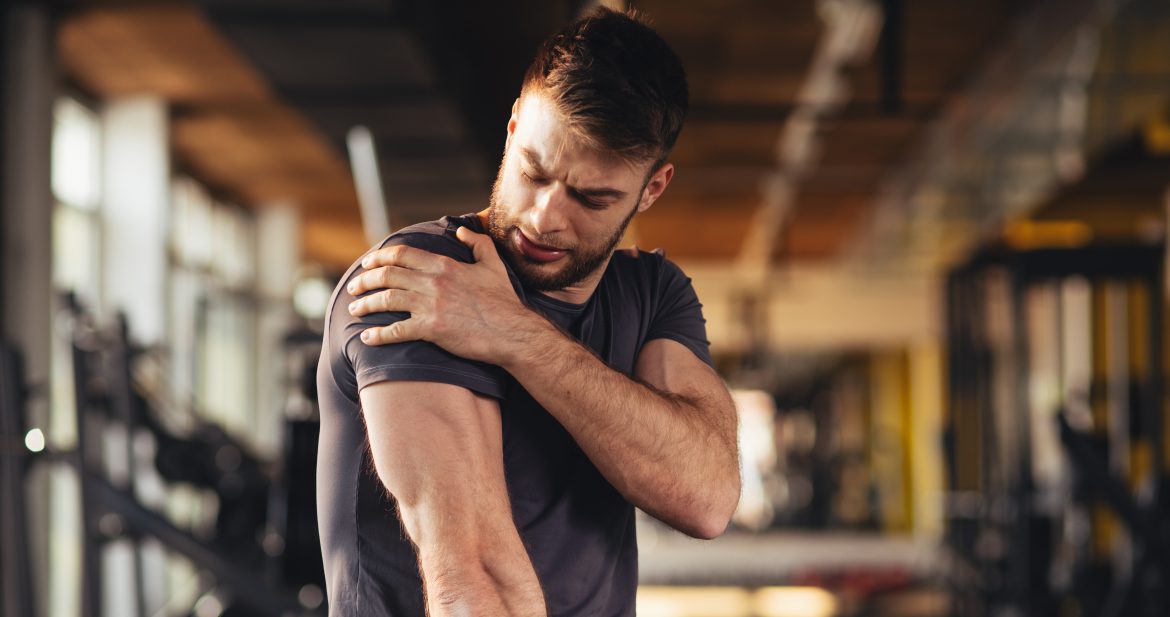Are you wondering: why does my shoulder clunk?
Clicking, popping and other joint noises can be alarming. They are rarely a cause for concern, however.
Read on to learn more about shoulder clunking and whether you should be worried about your joint.
Related:
- 4 Stretches That Give Fast Relief For Tight Shoulders
- A Brief Guide To Fixing Hunched Forward Shoulders
Shoulder Clunking: What Are The Causes?
Does your shoulder make a clunking noise when you move your arm?
The most common cause of a shoulder clunk is lack of space in the joint. You may also have tight shoulder muscles that restrict the movement of your scapula, or shoulder blade.
Shoulder joints are designed for mobility. Your shoulder is a shallow ball and socket joint, similar to your hip. However, your shoulder is much less deep, allowing for tremendous range of motion.
Unfortunately, when shoulder muscles get tight, they can cause clunking, clicking, popping or grinding noises as they move across bony surfaces.
Tight shoulder muscles can also slightly displace the humerus (arm bone) in the shoulder joint, causing clicking and popping. This can also happen when shoulders are weak and lacking integrity, which allows the bone to move around too much in the socket.
How To Fix A Shoulder Clunk
Using the wrong muscles to move your arms and shoulders will cause neck and upper shoulder tension, limiting mobility.
In the past, the majority of the population was engaged in some sort of manual labor. This strengthened the larger muscles of the back and lower scapula.
Your shoulder girdle (the bony structures that make up your shoulder and joint) needs muscular support because it only has one point of bony connection to the rest of your body: your clavicle, or collar bone.
These days, most people spend multiple hours in front of a computer, in cars, watching television, and utilizing fine motor skills to operate cell phones and other hand held devices.
The larger, strength-based muscles of your back and rib cage weaken with this type of lifestyle. Then you’re forced to rely on smaller, less efficient muscles in your neck and upper shoulder. These muscles are designed for fine motor skills — not heavy lifting.
To fix this problem, you’ve got to retrain your body to use its powerful shoulder and back muscles again.
The Bottom Line
To get relief for a clunking shoulder, you have to do two things…
First, you have to create space for the scapula to move.
Second, you have to retrain your body to support the shoulder using the large, postural muscles of the ribs and back.
Pain Free At Any Age
Want more great ways to stay pain-free whether you work in an office or on a mountain top? Click below to get access to my **free** Pain Free At Any Age video series that will help you heal your body in no time.

